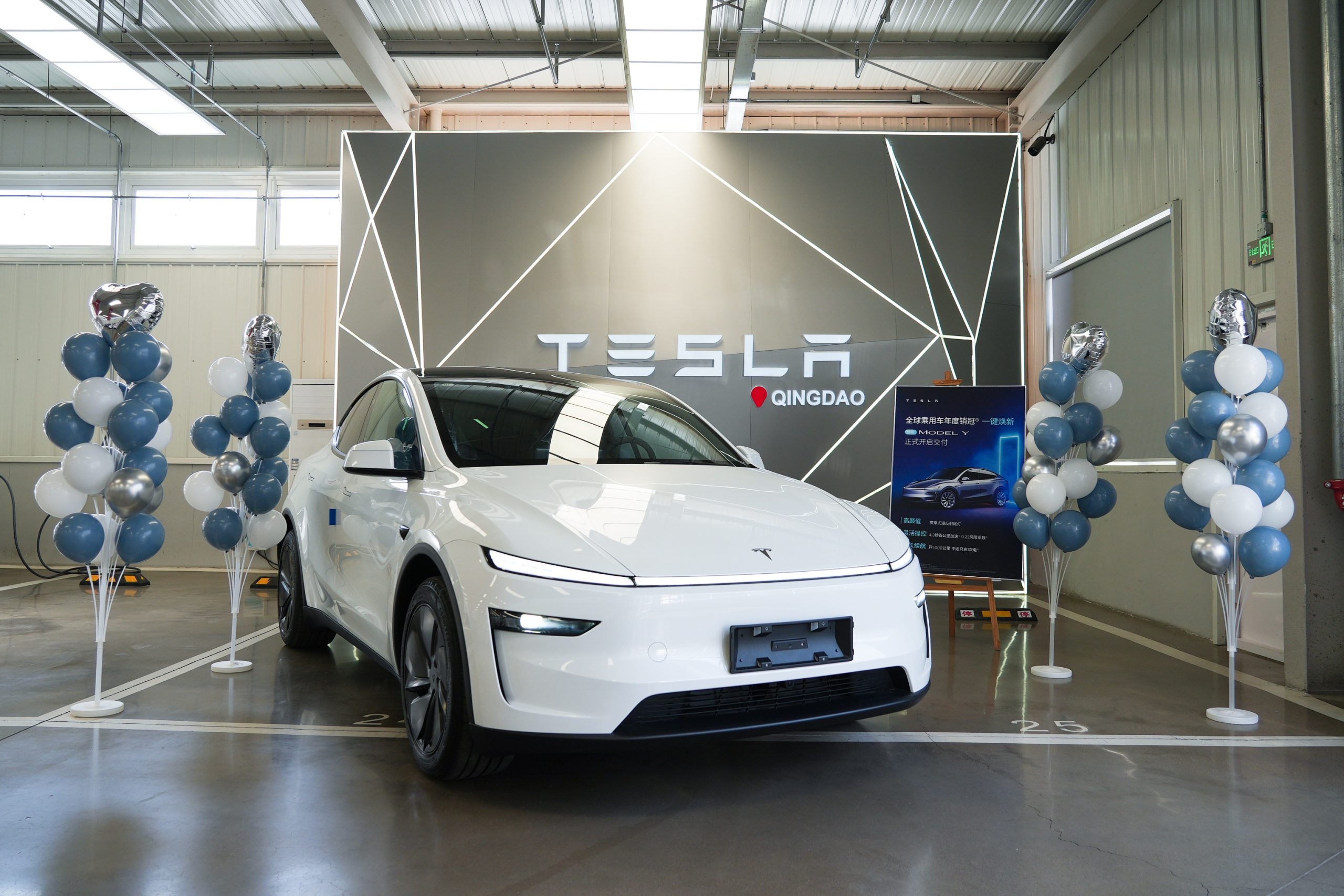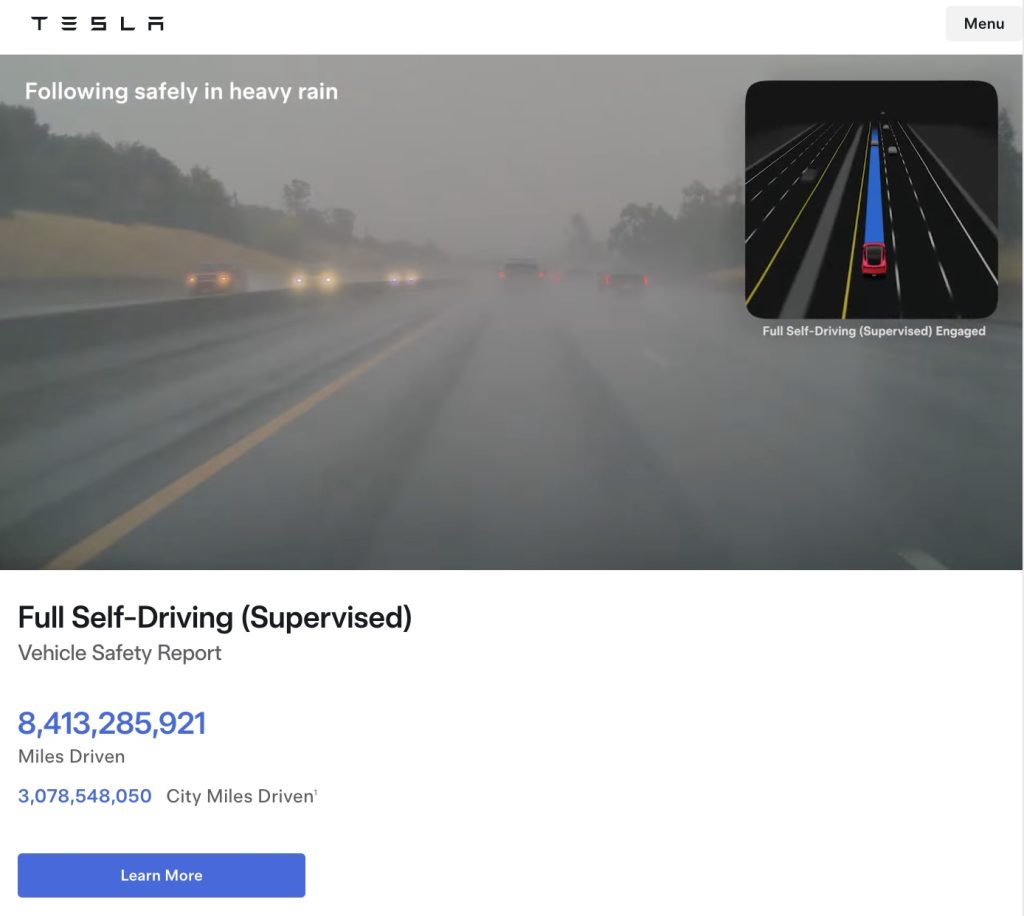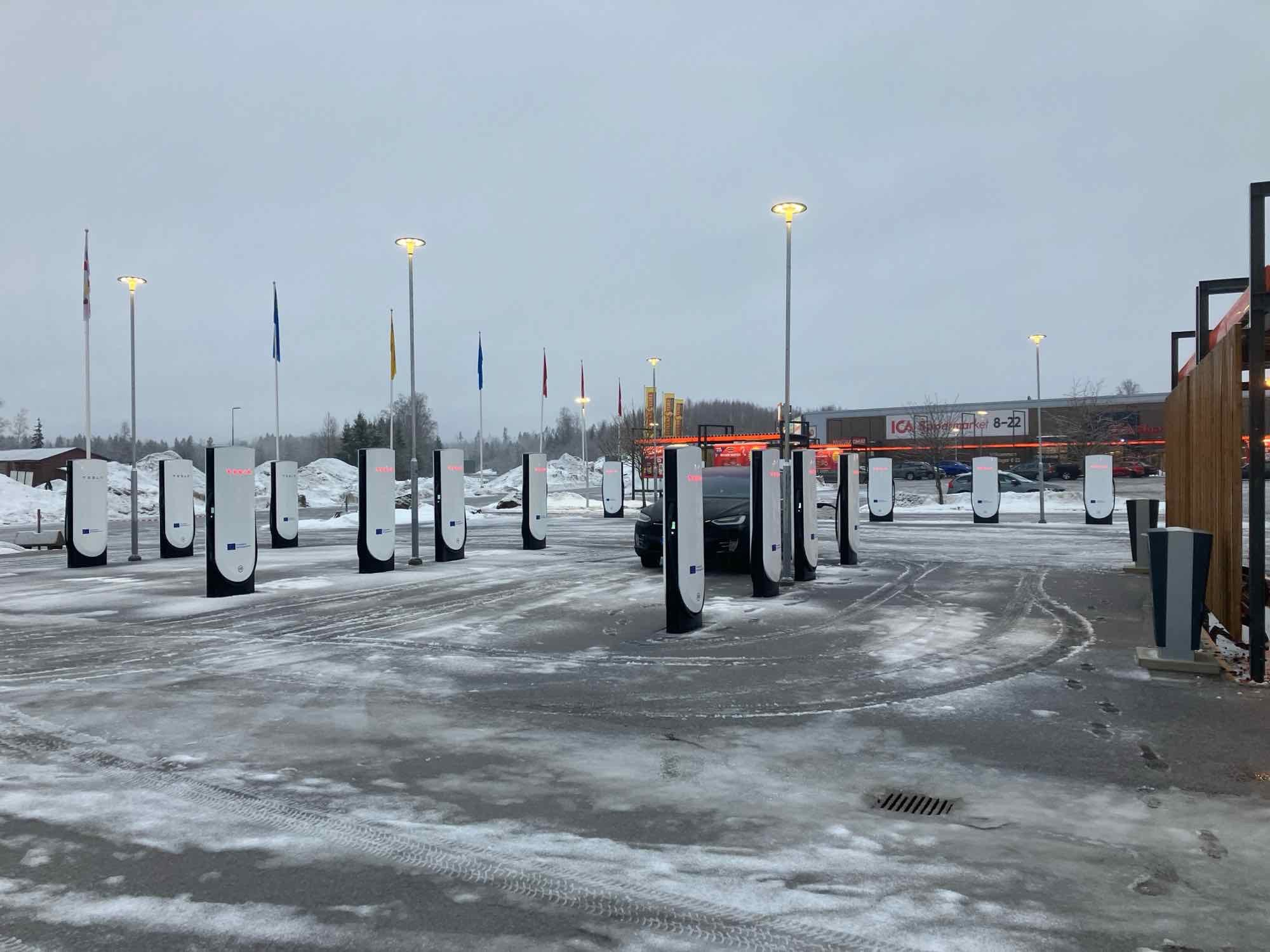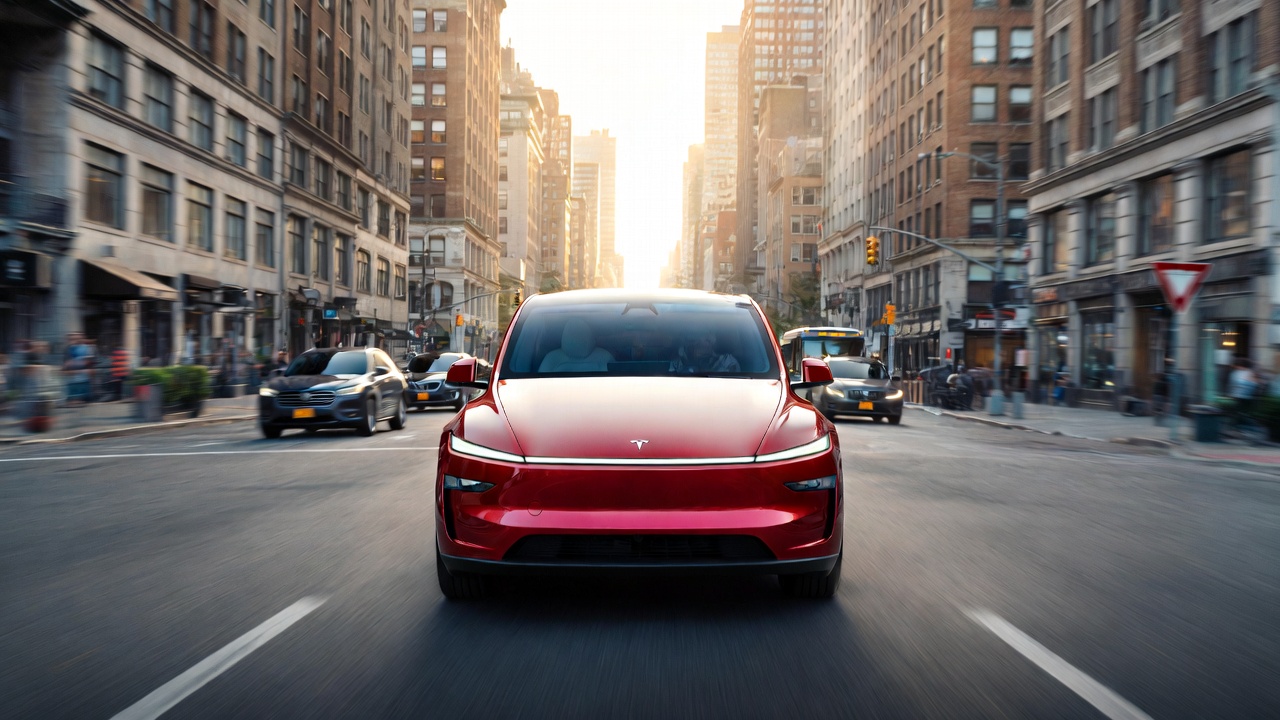Tesla
Tesla FSD improvements in China continues with Baidu’s help
Tesla is working with Baidu to improve FSD in China, as strict data laws prevent Tesla from training its AI locally.

Baidu is helping Tesla Full Self-Driving (FSD) improve in China.
Engineers from Baidu, a leading AI company in China, are helping Tesla with its FSD Version 13 software.
According to Reuters’ sources, Baidu recently dispatched engineers from its mapping team to Tesla’s Beijing office. The engineers are working on integrating Baidu’s navigation map information with Tesla’s FSD V13 software.
Tesla’s way of improving FSD V13 in China differs from the methods used in the United States. In the U.S., Tesla trains FSD to improve navigation techniques and learn about roads. In contrast, Tesla cannot train FSD in China due to the country’s data laws.
“Then China, which is a gigantic market, we do have some challenges because they currently don’t allow us to transfer training videos outside of China. And then the US government won’t let us do training in China. So, we’re in a bit of a there. It’s like a quandary,” noted Elon Musk during the last earnings call.
“So, we were solving then is by literally looking at videos of streets in China that are available on the Internet to understand and then feeding that into our training so that publicly available video of street signs and traffic rules in China can be used for training and then also putting it in a very accurate simulator. And so, it will train using SIM for bus lanes in China,” he added.
Tesla has rolled out FSD (Supervised) in Mexico and started the process to release it in parts of Europe. Despite a few regulatory issues, Musk is optimistic that FSD (Unsupervised) will be available in more countries this year.
“But I think we’ll have unsupervised FSD in almost every market this year, limited simply by regulatory issues, not technical capability. And then unsupervised FSD in the U.S. this year, in many cities but nationwide next year. And hopefully, we have unsupervised FSD in most countries by the end of next year,” he noted during the Q4 and Full Year 2024 earnings call.

News
Tesla FSD (Supervised) fleet passes 8.4 billion cumulative miles
The figure appears on Tesla’s official safety page, which tracks performance data for FSD (Supervised) and other safety technologies.

Tesla’s Full Self-Driving (Supervised) system has now surpassed 8.4 billion cumulative miles.
The figure appears on Tesla’s official safety page, which tracks performance data for FSD (Supervised) and other safety technologies.
Tesla has long emphasized that large-scale real-world data is central to improving its neural network-based approach to autonomy. Each mile driven with FSD (Supervised) engaged contributes additional edge cases and scenario training for the system.

The milestone also brings Tesla closer to a benchmark previously outlined by CEO Elon Musk. Musk has stated that roughly 10 billion miles of training data may be needed to achieve safe unsupervised self-driving at scale, citing the “long tail” of rare but complex driving situations that must be learned through experience.
The growth curve of FSD Supervised’s cumulative miles over the past five years has been notable.
As noted in data shared by Tesla watcher Sawyer Merritt, annual FSD (Supervised) miles have increased from roughly 6 million in 2021 to 80 million in 2022, 670 million in 2023, 2.25 billion in 2024, and 4.25 billion in 2025. In just the first 50 days of 2026, Tesla owners logged another 1 billion miles.
At the current pace, the fleet is trending towards hitting about 10 billion FSD Supervised miles this year. The increase has been driven by Tesla’s growing vehicle fleet, periodic free trials, and expanding Robotaxi operations, among others.
With the fleet now past 8.4 billion cumulative miles, Tesla’s supervised system is approaching that threshold, even as regulatory approval for fully unsupervised deployment remains subject to further validation and oversight.
News
Tesla Sweden appeals after grid company refuses to restore existing Supercharger due to union strike
The charging site was previously functioning before it was temporarily disconnected in April last year for electrical safety reasons.

Tesla Sweden is seeking regulatory intervention after a Swedish power grid company refused to reconnect an already operational Supercharger station in Åre due to ongoing union sympathy actions.
The charging site was previously functioning before it was temporarily disconnected in April last year for electrical safety reasons. A temporary construction power cabinet supplying the station had fallen over, described by Tesla as occurring “under unclear circumstances.” The power was then cut at the request of Tesla’s installation contractor to allow safe repair work.
While the safety issue was resolved, the station has not been brought back online. Stefan Sedin, CEO of Jämtkraft elnät, told Dagens Arbete (DA) that power will not be restored to the existing Supercharger station as long as the electric vehicle maker’s union issues are ongoing.
“One of our installers noticed that the construction power had been backed up and was on the ground. We asked Tesla to fix the system, and their installation company in turn asked us to cut the power so that they could do the work safely.
“When everything was restored, the question arose: ‘Wait a minute, can we reconnect the station to the electricity grid? Or what does the notice actually say?’ We consulted with our employer organization, who were clear that as long as sympathy measures are in place, we cannot reconnect this facility,” Sedin said.
The union’s sympathy actions, which began in March 2024, apply to work involving “planning, preparation, new connections, grid expansion, service, maintenance and repairs” of Tesla’s charging infrastructure in Sweden.
Tesla Sweden has argued that reconnecting an existing facility is not equivalent to establishing a new grid connection. In a filing to the Swedish Energy Market Inspectorate, the company stated that reconnecting the installation “is therefore not covered by the sympathy measures and cannot therefore constitute a reason for not reconnecting the facility to the electricity grid.”
Sedin, for his part, noted that Tesla’s issue with the Supercharger is quite unique. And while Jämtkraft elnät itself has no issue with Tesla, its actions are based on the unions’ sympathy measures against the electric vehicle maker.
“This is absolutely the first time that I have been involved in matters relating to union conflicts or sympathy measures. That is why we have relied entirely on the assessment of our employer organization. This is not something that we have made any decisions about ourselves at all.
“It is not that Jämtkraft elnät has a conflict with Tesla, but our actions are based on these sympathy measures. Should it turn out that we have made an incorrect assessment, we will correct ourselves. It is no more difficult than that for us,” the executive said.
News
Tesla expands global FSD (Supervised) testing with Abu Dhabi trials
The program marks the emirate’s first formal testing framework for Tesla’s supervised autonomous driving technology.

Tesla has started its first Full Self-Driving (Supervised) road trials in Abu Dhabi under the oversight of the Integrated Transport Centre, also known as Abu Dhabi Mobility.
The program marks the emirate’s first formal testing framework for Tesla’s supervised autonomous driving technology.
FSD (Supervised) road trials are being conducted with the support of the Smart and Autonomous Systems Council and in coordination with the Legislation Lab at the General Secretariat of the UAE Cabinet.
Dr. Abdulla Hamad AlGhfeli, Acting Director General of the Integrated Transport Centre (Abu Dhabi Mobility), highlighted the agency’s regulatory role in overseeing the FSD (Supervised) tests in a press release.
“The supervision of the Integrated Transport Centre (Abu Dhabi Mobility) over the commencement of Tesla’s advanced autonomous driving technology tests reflects its regulatory and legislative role. These tests represent a qualitative step to evaluate the technology’s performance in a real-world operating environment and to collect the necessary data to verify its readiness before any future expansion in usage.
“Through this organized framework, and in cooperation with strategic partners, we seek to achieve a balance between supporting innovation and encouraging the adoption of smart solutions on one hand and ensuring the safety of road users on the other, in line with the emirate’s direction to develop an advanced, safe, and sustainable transport system,” he said.
Tesla is putting a lot of effort into expanding the rollout of FSD (Supervised) to territories outside in the United States. During a recent interview with Giga Berlin plant manager Andre Thierig, Musk stated that Tesla is looking to secure approval for FSD (Supervised) in the Netherlands this coming March.
“Tesla has the most advanced real-world AI, and hopefully, it will be approved soon in Europe. We’re told by the authorities that March 20th, it’ll be approved in the Netherlands,’ what I was told. Hopefully, that date remains the same. But I think people in Europe are going to be pretty blown away by how good the Tesla car AI is in being able to drive,” Musk stated.








